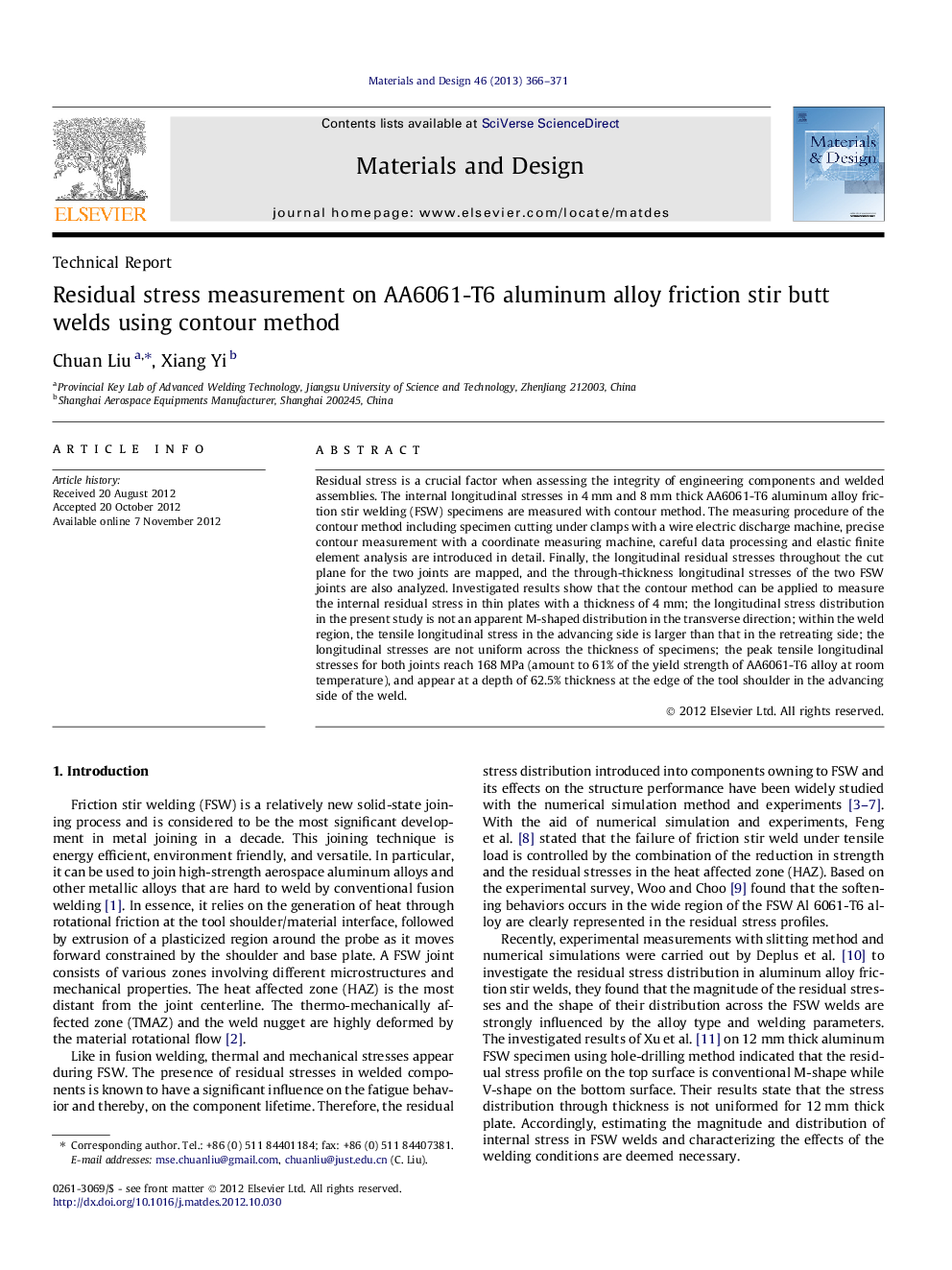| کد مقاله | کد نشریه | سال انتشار | مقاله انگلیسی | نسخه تمام متن |
|---|---|---|---|---|
| 830158 | 1470351 | 2013 | 6 صفحه PDF | دانلود رایگان |

Residual stress is a crucial factor when assessing the integrity of engineering components and welded assemblies. The internal longitudinal stresses in 4 mm and 8 mm thick AA6061-T6 aluminum alloy friction stir welding (FSW) specimens are measured with contour method. The measuring procedure of the contour method including specimen cutting under clamps with a wire electric discharge machine, precise contour measurement with a coordinate measuring machine, careful data processing and elastic finite element analysis are introduced in detail. Finally, the longitudinal residual stresses throughout the cut plane for the two joints are mapped, and the through-thickness longitudinal stresses of the two FSW joints are also analyzed. Investigated results show that the contour method can be applied to measure the internal residual stress in thin plates with a thickness of 4 mm; the longitudinal stress distribution in the present study is not an apparent M-shaped distribution in the transverse direction; within the weld region, the tensile longitudinal stress in the advancing side is larger than that in the retreating side; the longitudinal stresses are not uniform across the thickness of specimens; the peak tensile longitudinal stresses for both joints reach 168 MPa (amount to 61% of the yield strength of AA6061-T6 alloy at room temperature), and appear at a depth of 62.5% thickness at the edge of the tool shoulder in the advancing side of the weld.
► The internal residual stresses in FSW specimens are mapped using contour method.
► The stress in the advancing side is higher than that in the retreating side.
► The peak tensile longitudinal stress amounts to 61% of the material yield strength.
► The peak tensile longitudinal stress occurs at a depth of 62.5% thickness.
Journal: Materials & Design - Volume 46, April 2013, Pages 366–371